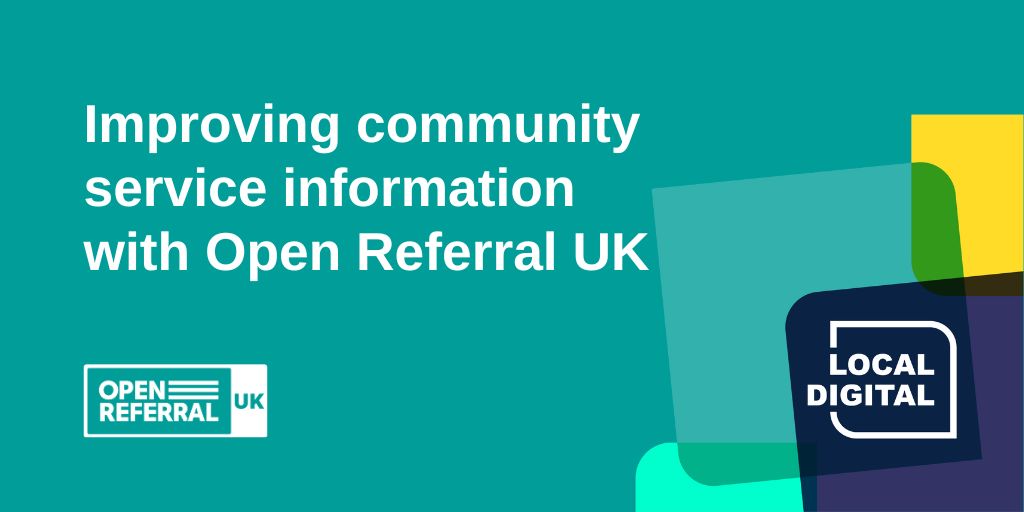
Improving community service information with Open Referral UK
When a frontline professional needs to connect someone with community services, it’s crucial that the information is accurate and up to date.
To deliver more reliable signposting, particularly for mental health support, BCP Council (Bournemouth, Christchurch and Poole) and NHS Dorset adopted the Open Referral UK (ORUK) standard. This transformed how they manage and share service information.
Giving frontline professionals the data they need
BCP Council and NHS Dorset collaborated with Community Action Network (CAN) and Digital Co-Production to launch a new Service Finder tool. They used a shared dataset of local community services, restructured to fit the ORUK standard.
By co-designing the tool with frontline professionals, they created a trusted, flexible way to find support. It helps staff discover new and more appropriate services they might not have otherwise found. Over 650 professionals are now using the tool.
“The work that has gone into developing it and the opportunity it represents to support communities are fantastic. I have seen first-hand how enthusiastic professionals have been at the opportunity it represents to guide patients more effectively.”
Project Manager, Dorset HealthCare
How your organisation can apply ORUK
The BCP Council and NHS Dorset project is a great example of using ORUK to make sure one source of data can be reused in many places.
We know the practical application of a data standard can sometimes be difficult to explain to decision-makers.To make this easier, we’ve published a new set of ORUK use cases. These examples show how your organisation can:
- reuse data from one source in many places – in different formats and for different audiences
- empower professionals to support people – help them find up-to-date community service information from a single, reliable source
- use automated checks to improve data quality – keep data up-to-date, and consistent, reducing errors and saving you time and money
- combine local data for regional and national services – consolidate data from multiple local sources into a single, reusable dataset
- keep local data accurate using national sources – make data collected at a national level simple to reuse locally
- use combined data to plan and commission services – see how services are being used to make evidence-driven decisions about funding and resources
Collaborating with the ORUK community
In our last blog, we shared that we were testing our use cases with the community. We’ve used this feedback to make sure they are easy to understand, more practical, and easier to apply – helping you to:
- build a compelling business case
- show how ORUK can be used within your organisation
Help us to continue improving these resources with your feedback.
Find out more and get involved
If you’re already using the ORUK standard but are not listed on our verified feed directory, please register your feed so we can showcase your work.
For further updates and to connect with the community:
- visit the ORUK website to explore resources and learn more
- subscribe to the ORUK mailing list for news and updates
- subscribe to the Local Digital newsletter
- subscribe to the MHCLG Digital blog
Categories: Blog posts , Data standards
Tags:
 UK Ministry of Housing, Communities and Local Government (MHCLG)
UK Ministry of Housing, Communities and Local Government (MHCLG) 